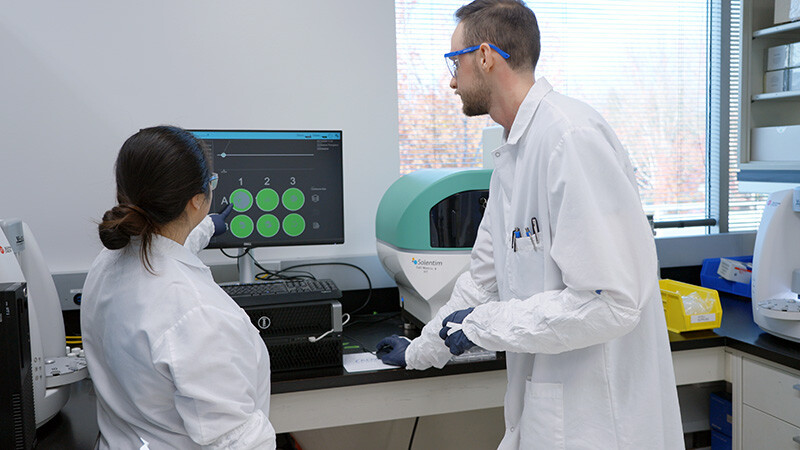- Case Study -
Reducing Risk and Timelines in Cell Line Development
Predictive Stability Testing with AGC Biologics’ CHEF1™ Expression Platform

The Challenge
Pharmaceutical companies developing biologics are often faced with the critical task of selecting a stable cell line that can consistently produce high-quality therapeutic proteins. Traditionally, this process takes over 12 weeks, involving extensive stability studies to ensure that the chosen clone maintains consistent productivity over time. This lengthy process exposes the project to the risk of instabilities that may only become evident at the end of the testing period, potentially delaying production and increasing costs.
AGC Biologics recognized the inefficiencies in this traditional approach and sought a solution that could identify unstable clones earlier, allowing for faster and more reliable clone selection.
This would significantly reduce the time and resources spent on cell line development (CLD) while improving the likelihood of selecting a stable, high-producing clone.
The AGC Biologics Solution
Leveraging our proprietary CHEF1™ expression system, we introduced a novel early stability prediction method during the clone expansion phase. By monitoring titer decline over time using weekly titer sampling during the seed train step, we identified instability patterns well before the completion of the typical 12-week stability study.

The study tested eight clones, including control clones known to be either highly or moderately unstable. AGC Biologics demonstrated that instability trends could be detected early by measuring the slope of the titer regression lines. Control clones with known instabilities showed steep declines in titer, while stable clones exhibited much flatter slopes or plateaued, indicating potential stability.

This innovative early prediction strategy allows AGC Biologics to:
-
Mitigate the risk of selecting unstable clones: By identifying instabilities during the expansion phase, problematic clones can be eliminated early, reducing the risk of costly delays.
-
Increase throughput in clone screening: The ability to perform high-throughput stability screening enables AGC Biologics to evaluate more clones in a shorter timeframe, accelerating the overall CLD process.
-
Shorten timelines for clone selection: With early insights into clone stability, the traditional 12-week testing period can be streamlined, enabling pharmaceutical companies to move to production faster.
The Results
A breakthrough in CLD: Reduced Risk, Less Time in Cell Line Development, and Faster Time to Market
Our early stability prediction approach represents a breakthrough in CLD. The ability to predict clone instability up to 4 weeks earlier allows companies to make more informed decisions about clone selection, resulting in more stable, high-producing clones entering production. This reduces the time and costs associated with traditional cell line stability studies.
Rigorous testing of this method has allowed it to become an integral part of AGC Biologics’ CLD platform. With a growing demand for faster, more reliable CLD services, early CHEF1™ stability prediction positions AGC Biologics as a leader in efficiency, innovation, and quality in cell line development for biologics manufacturing.
Our proprietary platform process ensures that their pharmaceutical clients can meet time-sensitive production demands with greater confidence in product quality and consistency by reducing risks, accelerating timelines, and improving clone selection accuracy.
Access our proven & reliable proprietary cell line
AGC Biologics’ CHEF1™ expression platform offers the confidence and reliability of a commercially-proven CLD platform with multiple products in the market in addition to clear and direct pricing without royalties or milestones.





